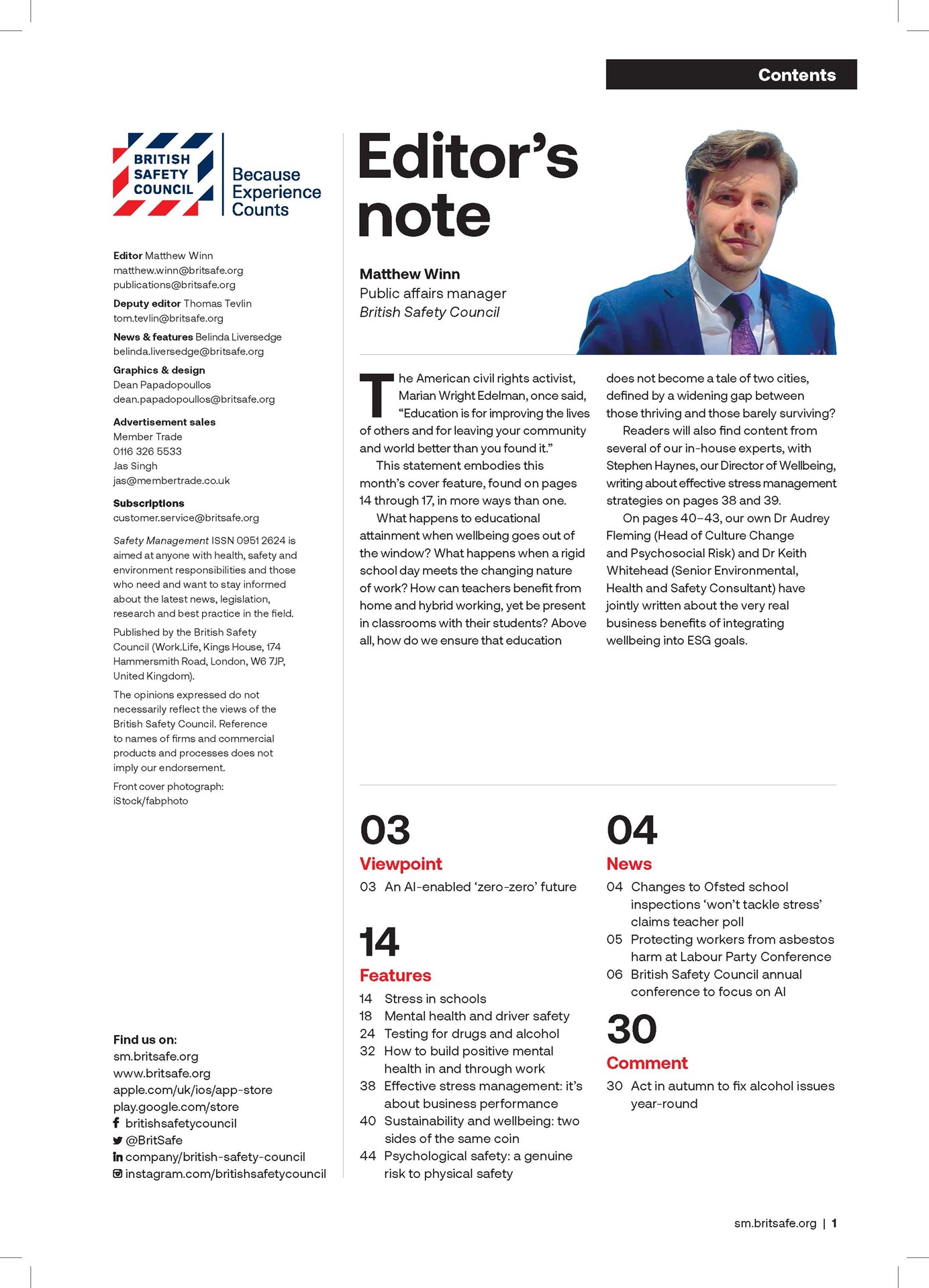The odds of being diagnosed with common mental health disorders are greater for people living in polluted areas, even when factors like socioeconomic deprivation have been accounted for, a new report has cited.
News
Evidence grows for air pollution link to poor mental health
Looking at more than 35,000 studies written over the past 10 years, the report from Imperial College London draws on this and other studies to show the mounting evidence for the ill health impacts of air pollution.
Although the impacts on life expectancy have been known for decades, say the authors, newer evidence points to problems not considered in previous health impact assessments.
 The odds of being diagnosed with common mental health disorders are greater for people living in polluted areas. Photograph: iStock
The odds of being diagnosed with common mental health disorders are greater for people living in polluted areas. Photograph: iStock
The most important new finding includes evidence related to air pollution's impacts on brain health, including mental health and dementia, it adds.
“While headline figures on the health impact of air pollution focus on the equivalent number of premature deaths, the wider impacts are hiding in plain sight in the contribution of air pollution to the burden of chronic diseases,” says the report.
“These affect our quality of life and have a large cost to society through additional health and social care costs, as well our ability to learn, work and contribute to society.”
Nearly 60,000 studies on the health impacts of air pollution are available, with over half of these being published in the last ten years.
The new evidence highlighted on mental health links to air pollution co-incides with the announcement of this year’s Clean Air Day theme which is ‘Clean up our air to look after your mind’.
On 15 June, it will be the seventh year since the campaign has run and seven years since the seminal Royal College of Physicians (RCP) report Every breath we take: the lifelong impact of air pollution was published.
In that time, researchers are beginning to understand how air pollution can affect the brain and the mind, including its links to depression, anxiety and dementia, says the group behind the awareness day, Global Action Plan.
Larissa Lockwood, Director of Clean Air at Global Action Plan, said: “This year’s theme draws attention to the growing evidence base that shows air pollution can impact our mind and brain health. By taking clean air action on 15 June and every day, we are improving our air quality and reducing our risk of developing mental health and brain conditions.”
Imperial College London, Impacts of air pollution across the life course – evidence highlight note: here
NEWS

Top jobs in safety in greatest demand right now, says recruiter
By Belinda Liversedge on 29 October 2025
Senior safety professionals who can influence culture, lead transformation, and align health and safety with wider business goals are in growing demand by employers, the recruiter Irwin & Colton have said.

HSE inspectors target Manchester construction sites as part of health drive
By Belinda Liversedge on 28 October 2025
HSE inspectors made a series of proactive inspections last week in Manchester city centre to tackle ill-health on construction sites.

Headline fines highlight common errors in reversing
By Belinda Liversedge on 24 October 2025
Reversing incidents have come into sharp focus in recent months, says HSE with two high profile fines totalling £3.5 million for the death of two workers.



